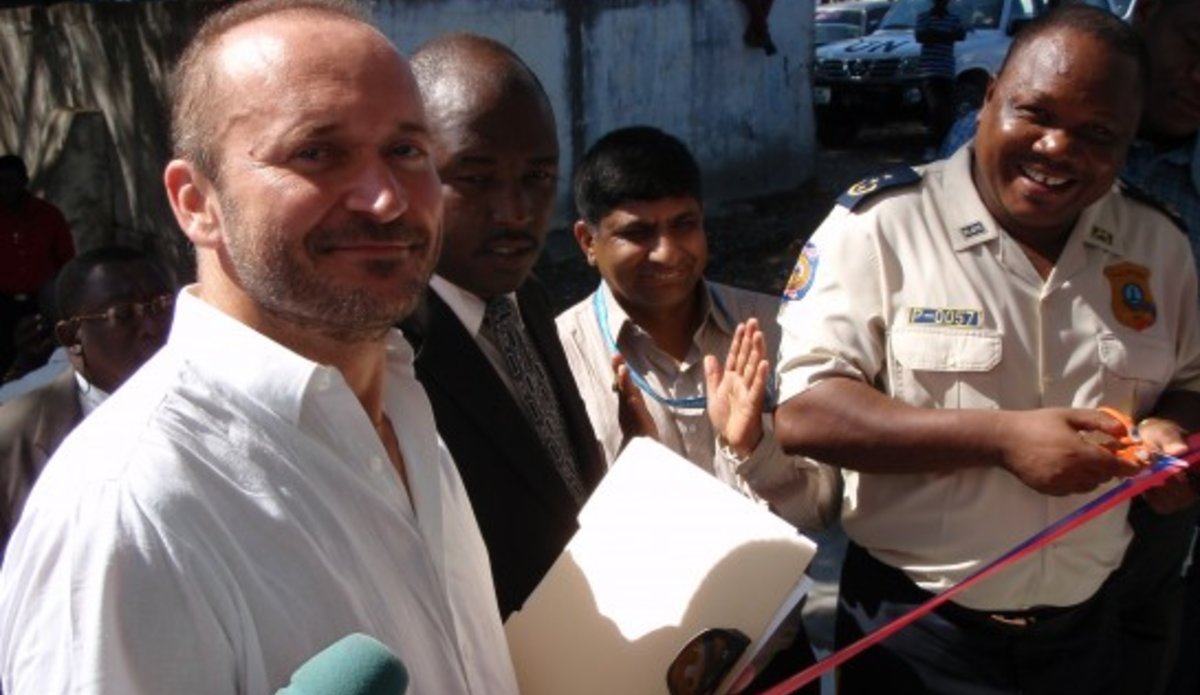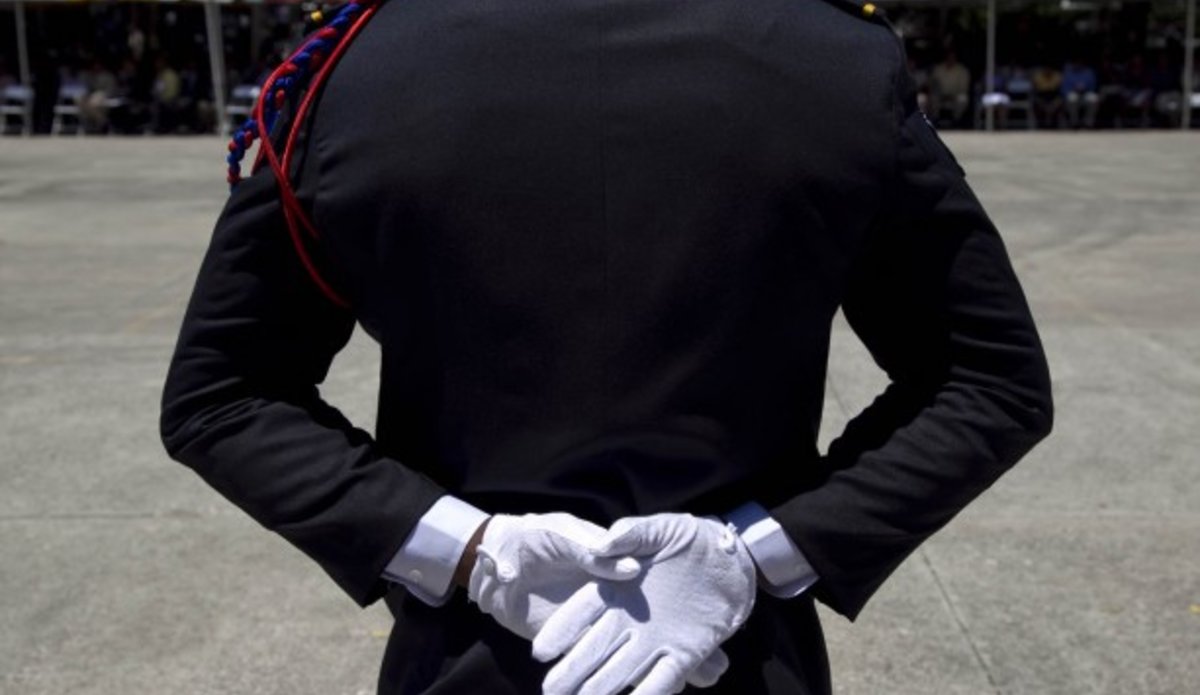All-new infrastructure for the Haitian Police in Port-de-PaixDe nouvelles infrastructures pour la police haïtienne à Port-de-Paix
A refurbished garage, a new dormitory for 15 officers and connections for the prison and the police station to the drinking water network, are just some of the improvements being brought to the work life of the Police Nationale d’Haiti (PNH) in the Northwest of the country. These major projects “will improve working conditions and enhance policing infrastructure in the region", said Bastien Fedner, the Departmental Director of the PNH in the Northeast.
 Logan Abassi UN/MINUSTAH
Logan Abassi UN/MINUSTAH
The new facilities in Port-De-Paix will allow the police to "leave the enclosed space in which we have worked for over three years," says Wilfried Henri, head of the Unité départementale de maintien de l’ordre (UDMO – or, the departmental unit for the maintenance of order, in English).
The projects were funded by MINUSTAH’s Quick Impact Projects (QIPs), for a total cost of approximately U.S. $100,000. The work was carried out by the Haitian office of building and architecture, known by the acronym EBA.
Vicky Delore Ndjeuga
Un garage remis à neuf, un nouveau dortoir pour 15 policiers et la connexion de la prison et du commissariat au réseau d’eau potable, telles sont les améliorations apportées au travail de la Police nationale d’Haïti (PNH) dans le Nord-ouest d’Haïti. Des projets « importants qui vont améliorer les conditions de travail et renforcer les infrastructures policières dans la région », a expliqué le Directeur départemental de la PNH dans le Nord-est, Bastien Fedner.
 Logan Abassi UN/MINUSTAH
Logan Abassi UN/MINUSTAH
Ces nouvelles infrastructures vont justement permettre aux policiers de « sortir de l’espace cloitré dans lequel nous travaillions depuis plus de trois ans », relève le chef de l’Unité départementale de maintien de l’ordre (UDMO), Wilfried Henri.
Ces projets ont été financés par la MINUSTAH dans le cadre de ses Projets à effet rapide (QIPs), pour un coût total d’environ 100 000 dollars US. Les travaux ont été réalisés par le bureau haïtien de construction et d’architecture (EBA).
Vicky Delore Ndjeuga
 ONU
ONU Nations Unies Maintien de la paix
Nations Unies Maintien de la paix




